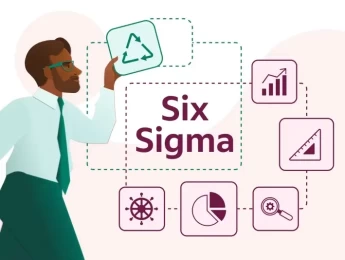Creating a key account network within an organisation requires in-depth knowledge about each partner and their needs. You’ll need to develop your understanding of the market and your competitors to keep your accounts on the side and provide the best deals and offers to keep your businesses in the green.
An Account Manager needs to maintain an honest relationship with their account leads to fulfil their needs and create mutually beneficial outcomes effectively. To increase company conversion and generate positive reviews of your B2B offering, you should become a value-adding partner who is approachable and consistent in delivering amazing service rather than a transactional supplier interested solely in profit margins. This will put you at the top of your partners’ connection lists when they’re seeking stakeholder engagement and support to move forward with their business.
Upon completion of this course, participants will be able to:
- Develop meaningful, mutually beneficial relationships with partners.
- Create a B2B strategy that’s attractive to external suppliers and organisations.
- Maintain a database of partner information that can be used to secure long-term business relationships.
- Analyse and monitor changes in the market and be reactive with partners Move businesses forward.
- Upsell services and products for the benefit of the account holder.
- Instigate honest and open relationships with partners, ensuring you are their go-to contact.
- Communicate effectively and professionally, utilising negotiation and influencing skills to gain positive outcomes.
- Lead a team of competent account managers to achieve company targets and work towards ambitious long-term goals.
This course is great for anyone who manages key accounts within an organisation or works alongside partners and stakeholders to generate buy-in to new initiatives or needs to develop meaningful relationships with clients to achieve organisational objectives. It would be most beneficial for:
- Account Managers
- Key Account Directors
- Business Owners
- Marketing Executives
- CEOs
- Marketing Directors
- Sales Directors
- Sales Managers
- Product Managers
This course combines multiple learning techniques to increase participants’ knowledge and understanding of the key account management role. It uses experimental learning through practical exercises and role-playing activities to develop essential communication skills.
You will also participate in group discussions and presentation sessions to review the analytics and results of real-life case studies. This will help to determine how to use accurate recording keeping to create long-lasting relationships with clients and stakeholders. You will also be provided with tools and tricks through engaging presentations to upsell products without appearing ‘salesy’ and learn skills to overcome negativity from partners to achieve a successful outcome.
Day 5 of each course is reserved for a Q&A session, which may occur off-site. For 10-day courses, this also applies to day 10
Section 1: The Key Principles of Account Management
- Understanding the key principles of KAM.
- The 5 levels of Key Account Management.
- Your buying process - simplicity is paramount.
- Your CRM - the cornerstone of account management.
Section 2: Your Key Account Management Framework
- Understanding your target market and which partners to prioritise.
- Implementing a key account strategy.
- Developing a strategic roadmap to meet your needs.
- Tools and templates to construct your strategy.
- Rules and regulations.
- The power of ‘to-do’ lists.
Section 3: Developing Lasting Relationships
- Creating a relationship built on trust.
- Understanding what’s important to your partners.
- Tailoring propositions to your audience.
- Identifying challenges and being able to overcome them for your clients.
- What motivates your clients, and how can you incorporate this into your strategy?
- Your portfolio - proof of legitimacy.
- Relationship lifecycle planning.
Section 4: Identifying Key Success Factors
- Understanding the motivations and strategies of your partnered organisations.
- Your pricing structure and its merits.
- Your credibility and reputation.
- Your team strengths and effective task delegation.
- Monitoring figures and tracking data to access the most profitable clients.
- The customer expectation benchmarking matrix.
Section 5: Effective Communication & Negotiation Techniques
- Identifying the decision-maker in the company.
- The art of influencing and negotiation.
- Pushing for a better position.
- Understanding key sales buttons to push and when to push them.
- Selling without using sales language.
- Understanding your client on a personal level.
- Utilising client personas and documenting key information.
Section 6: Objection Handling & Upselling
- Understanding benefits vs. functions.
- Overcoming price comparisons.
- Hidden influencers and their dangers.
- Offering extras without spending money.
- Outside-the-box thinking to increase success rates.
Section 7: Costing And Budget Adherence
- Ensuring your products make a profit.
- Where can offers be made to increase conversion without losing out?
- Your take on ‘freebies.’
- Single-factor models.
- Decision-making models.
- Cost-per-call and extra resourcing.
Section 8: Engaging an Effective Account Management Team
- Recruitment ideals for account managers.
- Setting Key Performance Indicators to meet your priority aims.
- Managing performance in your accounts team.
- Developing SMART targets based on key account aims.
- Training and development of account managers.
- Your role as a leader or senior account executive.
- Generating buy-in for your company's aims.
Section 9: Introducing New Products & Reviewing Successes
- Take on feedback and amend processes to suit your stakeholders.
- Identifying gaps in your service.
- SWOT analysis for identifying change.
- Risk assessments and reviews.
- What products can you develop to maintain your clients’ interest?
- Predicting future trends - how to move forward.
- Prioritising opportunities and devising future frameworks.
Upon successful completion of this training course, delegates will be awarded a Holistique Training Certificate of Completion. For those who attend and complete the online training course, a Holistique Training e-Certificate will be provided.
Holistique Training Certificates are accredited by the British Assessment Council (BAC) and The CPD Certification Service (CPD), and are certified under ISO 9001, ISO 21001, and ISO 29993 standards.
CPD credits for this course are granted by our Certificates and will be reflected on the Holistique Training Certificate of Completion. In accordance with the standards of The CPD Certification Service, one CPD credit is awarded per hour of course attendance. A maximum of 50 CPD credits can be claimed for any single course we currently offer.
- Course Code PM1-103
- Course Format Online, Classroom,
- Duration 5 days














